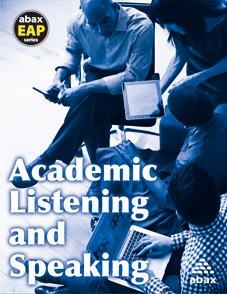
Why did your team put this material together?
In recent years there has been increasing demand for bridge materials at lower levels. In other markets, EMI curriculums are being introduced for increasingly lower level students, where students need much more support to access and process the materials. So we sought to fill this need with an academic series that has more linguistic support.
How does this series support lower level students having to work in an academic setting?
Well, there are many obstacles which prevent lower level students from participating actively. First of all, many students struggle with underdeveloped listening abilities. In addition, notekeeping skills need to be developed. The ability to write down notes from a lecture is something that even highly proficient learners struggle with.
Lastly, students with more discourse level support, to help them summarize, or make comparisons and contrasts and so on.
How does this series do this?
Well, for listening support, we have a section that focuses on reduced form English. For notekeeping support we have a section that introduces some tactic to help students take notes more quickly using short forms and symbols etc. For discourse level support, we have students take notes using the Cornell Note-taking system, then from this structured set of notes, we have students follow a template to help them summarize, compare or contrast.
How were topics chosen?
A wide variety of topics were chosen to present students with a wide variety of academic vocabulary. Topics include International Relations, the Environment, Space, Anthropology, Fine Arts, Education, Psychology, Education and so on.
Does the book help students do academic presentations?
Each unit ends with a section where students need to talk about a subject that they’ve studied without any linguistic support. Students are asked to talk about a picture, a graph, a table and so on.
Students thus have to make short presentations about each topic that they’ve studied. In addition, each unit finishes off with some suggested project work, so students can have an opportunity to research a related topic and then make a presentation in class.
If you have any questions about Acaedmic Listening and Speaking, please get in touch with us!






